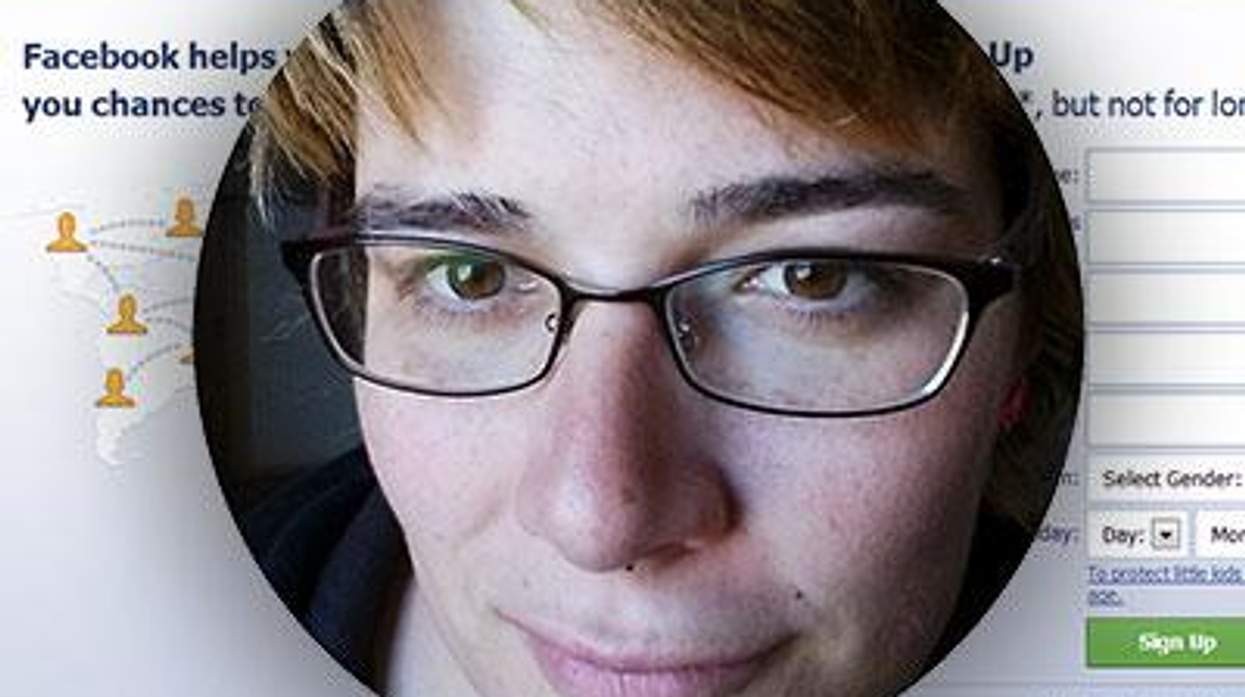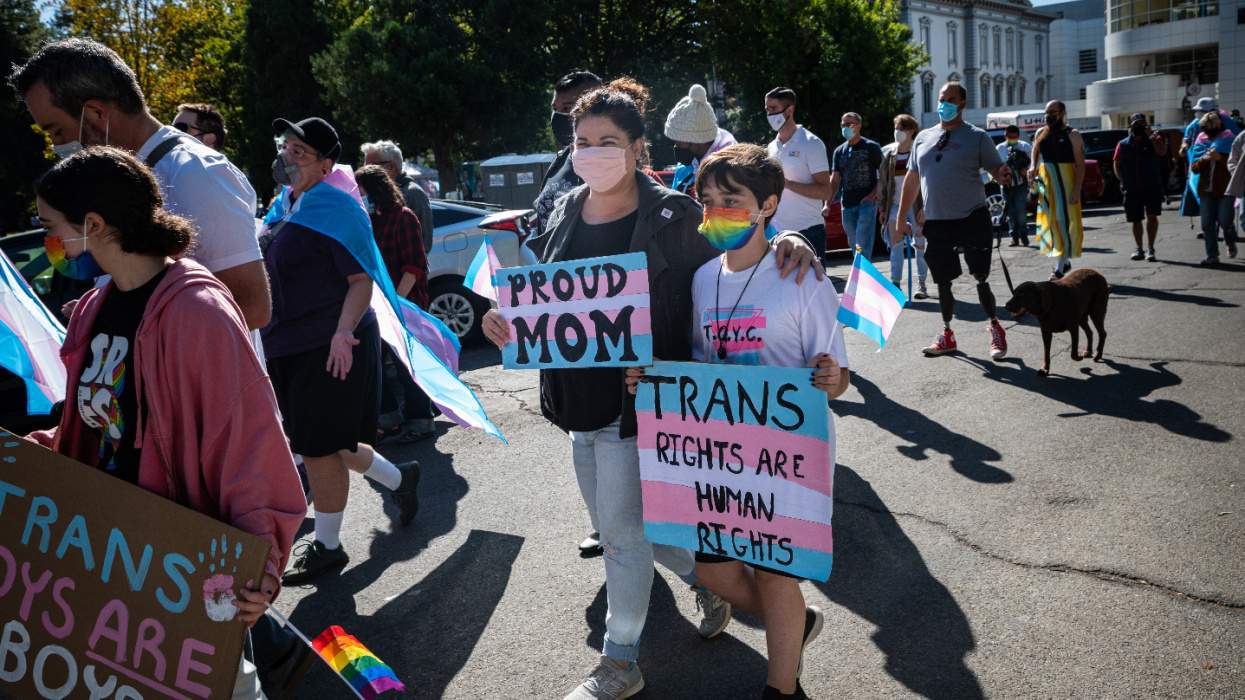As marriage equality celebrations echoed throughout the country Friday, a trans woman who at one time helped Facebook reflect users' gender diversity said she was still a target of discrimination: her profile was removed because the social media site deemed her name not "real" enough.
The woman, who goes by the name "Zip" online, posted her experiences to her Medium blog, saying:
"I always knew this day would come. The day that Facebook decided my name was not real enough and summarily cut me off from my friends, family and peers and left me with the stark choice between using my legal name or using a name people would know me by. With spectacular timing, it happened while I was at trans pride and on the day the Supreme Court made same sex marriage legal in the US."
And then she pointed out her situation's most ironic "twist," saying, "I used to work there. In fact, I'm the trans woman who initiated the custom gender feature. And the name I go by on Facebook? That's the name that was on my work badge."
Facebook's continued policy requiring users to register with their "authentic" name and to provide identification if asked -- lest they risk being locked out of their accounts -- has come down especially hard on members of LGBT communities who may go by nicknames or pseudonyms for safety, as well as trans people who use names different from the one assigned them at birth to reflect their authentic selves.
The debate over Facebook's the real-name policy first flared up last year, as drag queens and other LGBT community members were locked out of their accounts after a single user reported hundreds of people as having "fake names."
As The Advocate previously reported, Facebook agreed to meet with a group of users last September, and on October 1, 2014, the company apologized and adjusted the policy to accept additional types of proof of identity -- like bank statements or magazine subscriptions -- as long as one of them has a photo or a date of birth that matches the information on the Facebook profile.
Facebook chief product officer Chris Cox said at the time that, "Our policy has never been to require everyone on Facebook to use their legal name. The spirit of our policy is that everyone on Facebook uses the authentic name they use in real life."
The Transgender Law Center echoed that sentiment after sending representatives to the October meeting, saying "Facebook is ready to collaborate with our communities and shares our value of making sure everyone is able to safely be their authentic selves online."
However, reports of transgender people's Facebook profiles being banned continue. Gender variant artist Del LaGrace Volcano (who uses both male and female pronouns) told Gay Star News that the site refused to believe his/her name is "real" despite it being listed on Volcano's U.S. Passport.
On Saturday, protestors working with the #MyNameIs campaign targeted Facebook at San Francisco Pride over the ongoing "real name" policy. The group handed out buttons and fliers, criticized the company and its founder, and turned their signs to say "Shame on FB" in front of the parade judges. Facebook's headquarters is in Menlo Park, roughly 30 miles south of San Francisco.
Facebook, meanwhile, has shown its support for the LGBT community by encouraging hundreds of thousands of users to "celebrate pride" by adding a rainbow-colored filter to their profile pictures, following Friday's Supreme Court ruling for marriage equality -- a step that Zip called an "insult" in the face of the site's continued policy that bans many trans users.
"Facebook needs to do better than this," she wrote. "Technology is not neutral, and a technology that a billion people use to communicate has the power to warp and change reality around itself. ... [Facebook's custom gender options] exposed the world to the notion that gender might not be a binary. That's profound. It's time for Facebook to step up and do the same thing for names."















Charlie Kirk DID say stoning gay people was the 'perfect law' — and these other heinous quotes
These are some of his worst comments about LGBTQ+ people made by Charlie Kirk.